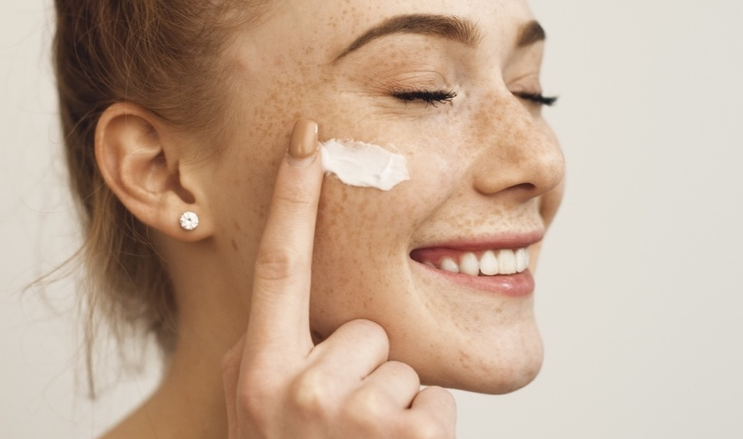What are the effects of retinol on the skin

What Are Retinoids, and Why Are They So Effective?
Retinoids are a family of Vitamin A compounds widely celebrated for their anti-aging and anti-acne effects. They range from over-the-counter (OTC) options, like retinol, to prescription forms, like tretinoin (retinoic acid) and isotretinoin (Accutane), for severe acne. Retinoids enhance skin cell turnover, boost collagen production, reduce acne, soften wrinkles, fade dark spots, and create a youthful glow.
How Do Retinoids Help with Acne?
Retinoids were initially developed to treat acne and remain one of the most effective treatments. By increasing cell turnover and gently exfoliating, they prevent pores from clogging and reduce blackheads, whiteheads, and inflamed acne. Retinoids promote micro-exfoliation, which clears out pores and enhances skin texture. The best retinoids for acne-prone skin are typically formulated with both retinol and niacinamide, which work together to reduce redness and fade post-acne marks.
Different Types of Retinoids
-
Retinoic Acid (Tretinoin): The first and most potent retinoid, often requiring a prescription. Tretinoin is effective but can cause irritation and sun sensitivity. It’s also commonly combined with preservatives that don’t align with modern “clean” beauty standards.
-
Retinol: Found in OTC products, retinol converts into retinoic acid on the skin, offering similar benefits with less irritation. Retinol is about ten times weaker than tretinoin, making it a gentler option for those with sensitive skin.
-
Retinyl Palmitate: A milder form that also converts into retinoic acid but requires more steps to activate. It's less effective but more affordable and stable in formulations.
Choosing the Best Retinoid
Three factors are essential when choosing a retinoid: conversion steps, concentration, and additional ingredients.
- Conversion Steps: Retinyl palmitate requires three conversion steps, while retinol only requires two, making retinol the preferred OTC option for faster results.
- Concentration: Look for products with labeled concentrations between 0.25% and 0.5%, as higher percentages can cause excessive irritation without necessarily improving results.
- Additional Ingredients: Niacinamide is a top choice for pairing with retinoids, as it enhances retinoid effectiveness while hydrating and soothing the skin. Avoid formulations with potentially irritating preservatives, such as parabens or phthalates.
Best Practices for Using Retinoids
- New to Retinoids: Start with 0.25% or 0.5% concentration, applying every other night to build tolerance.
- For Acne: Pair with a salicylic acid cleanser to manage excess oil and prevent clogged pores.
- For Dark Spots: Alternate retinoid use with Vitamin C products (Vitamin C in the morning, retinoid at night).
Tips & Tricks for Effective Retinoid Use
- Dilute with Moisturizer: Mix a small amount of retinoid with a moisturizer to reduce potential irritation, especially when first starting.
- Night-Only Use: Retinoids make skin more sensitive to sunlight, so always use them at night and follow with a broad-spectrum SPF during the day.
- Avoid Sensitive Areas: Be cautious around the mouth, nose, and eyes. Applying an eye cream first can help create a buffer around these areas.
- Storage Matters: Store your retinoid in a cool, dark place—light and air exposure can degrade its effectiveness. A dark, sealed tube or jar is ideal.

Common Questions About Retinoids
- How Quickly Will I See Results? It can take 3–6 months for results to show. For faster results, you may combine with other acne treatments like benzoyl peroxide or salicylic acid, using them on alternating nights.
- What’s Normal Side Effect? Dryness, peeling, and redness are common in the first 2–4 weeks. Your skin will adjust over time.
- How Much Product Should I Use? A pea-sized amount is enough for the entire face.
- Should I Use Cream or Gel? Creams work well for dry skin, while gels are better for oily skin as they absorb quickly.
- When Should I Start Using Retinoids for Anti-Aging? Starting in your mid-to-late twenties is ideal to help offset collagen loss.
Safety Considerations
- Pregnant or Breastfeeding? Avoid all retinoids, including OTC retinol, as they may pose risks to the developing baby.
- Long-Term Use: Retinoids are safe and effective for long-term use, with benefits increasing over time.
In summary, retinoids are a versatile powerhouse in skincare, suitable for various skin concerns, from acne to wrinkles. With the right concentration, complementary ingredients, and a thoughtful application routine, retinoids can transform your skincare regimen and provide long-lasting results.
Shop:
MDacne's Retinol + Niacinamide Kit 60 Days (amazon).
Retinol Treatment System - Perfect Retinol starter kit
References:
- Randomized parallel control trial checking the efficacy and impact of two retinol concentrations in the original formula on the aging skin condition: Pilot study. Journal of cosmetic dermatology, 19(2), 437-443.
- One-year topical stabilized retinol treatment improves photodamaged skin in a double-blind, vehicle-controlled trial. Journal of Drugs in Dermatology: JDD. 2015 Mar;14(3):271-280.
- Topical Retinoids: Therapeutic Mechanisms in the Treatment of Photodamaged Skin. Am J Clin Dermatol 17, 265–276 (2016).
- A novel antiaging mechanism for retinol: induction of dermal elastin synthesis and elastin fiber formation. Int J Cosmet Sci. 2011;33:62–9.
To find the right acne treatments for your unique skin, take the free skin assessment by clicking here.



